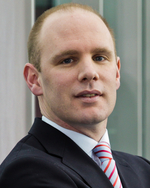
Gerard McDonough
A confident outlook is reflected in the fact that over half of Global FS CEOs plan to take on more staff over the coming year, according to the PwC 17th Annual Global CEO Survey. Yet, simply hiring the same people to do the same jobs in the same way could leave FS organisations off the pace in a marketplace being reshaped by technology, regulation and changing customer expectations. We’re not only seeing shifts in what businesses need from their people, but also what they want in return.
So how can organisations get on the front foot? We believe that new ways of formulating and delivering talent strategies will be needed to keep pace with the accelerating changes in business models and markets.
1. Coherent workforce plan
Moving away from department-by-department hiring and career development to create a more proactive, systematic and centralised workforce plan capable of anticipating what people are needed and where they should be deployed to meet business objectives.
2. Database of people to meet specific needs
To support the workforce plan, HR will develop a comprehensive database of people who can meet particular needs, both from within the organisation and outside. Within this more flexible model, HR would oversee more bidding for jobs and resources in an approach akin to tendering in government.
3. Developing a hybrid human and virtual resource model
As analytics, automation and new forms of artificial intelligence become core elements of the operation, it will be important for HR to manage both human and virtual/machine resource capabilities side by side.
4. Sharper measurement
Effective workforce plans use both internal and external data to inform scenario, capacity and capability planning throughout the organisation. It’s important to develop real-time response to data feeds, with HR evolving into part of a wider performance team. A further priority is developing ways to measure performance across omnichannel operations.
5. Communicating the employer brand more widely
As FS organisations seek to recruit more people from government, industry and technology companies, it will be important to gauge their attractiveness to people in these new areas and how to strengthen the employer brand.
6. Identifying people to be retained
Younger generations are going to be more mobile. It’s therefore important to develop clear ways to identify and concentrate resources on the people that it is vital to retain.
7. Reshaping the culture
Culture is influenced by a series of levers including purpose, vision, values, behaviours and reinforcing mechanisms.
HR should be at the forefront of developing the necessary reinforcing mechanisms in areas such as performance reward, and tracking behaviour and other measurable elements of culture.
8. Working with colleges to reshape curricula and attract more people into the industry
The high skills shortages identified in the CEO survey can’t be tackled by individual organisations or the industry alone.
The partnership with government should include investment in education, advice on appropriate curricula and a renewed focus on graduate recruitment and training.
FS organisations are going to look very different in five years time. They will be more diverse as people from many different backgrounds are brought in to meet new social and commercial demands.
Analytics and networking are going to revolutionise how people make decisions and interact with each other. HR is going to be at the forefront of these changes, judging what people will be needed, developing new ways to engage and motivate them, and managing the transition to real-time performance monitoring and response.
